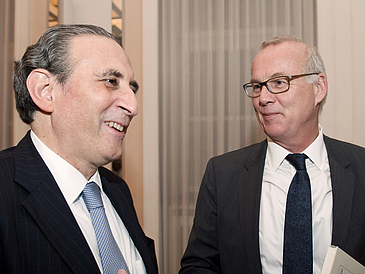The growing threat to marine ecosystems from humans calls on all coastal communities to develop a stronger awareness of the consequences of climate change on marine life. With 6,400 kilometers of Pacific coastline, from the subtropics to the Antarctic and Easter Island, Chile is an important natural laboratory for international marine research. On October 10, 2017, the conference “Ocean and Climate Change: Past, Present and Future Future” to which the MARUM Center for Marine Environmental Sciences of the University of Bremen and the Embassy of Chile had invited together.
Worldwide repercussions of climate change
The opening speech in the well-filled hall of the Bremen Chamber of Commerce was held by Patricio Pradel, Ambassador of the Republic of Chile to Germany: “Chile is a country with a maritime vocation. It is therefore our intention as well as obligation to proactively face the challenges of climate change. That is why we have set up protected marine zones over many thousands of kilometers, have prepared a ban on plastic bags and are in the process of establishing an 'ocean police' unit – but the effects of climate change are global. All nations are called to action.”
Climate knows no frontiers
The protection of living creatures and biodiversity in the world’s oceans and seas is also a topic for Bremen’s Senator for Science, Health and Consumer Protection, Professor Eva Quante-Brandt: “The climate knows no boundaries. Chile can serve the international research community as a natural ‘laboratory’. We should seize this opportunity.”
Ideal conditions for joint projects
The two high-profile areas of marine and climate research at the University of Bremen offer ideal conditions for joint research projects, stressed Professor Bernd Scholz-Reiter, President of the University of Bremen. “With the MARUM, our University has a renowned science institution known internationally for its excellent research,” he said.
These introductory remarks were followed by two lectures which illuminated the problems from different scientific perspectives. On the one hand, the German marine geologist Professor Dierk Hebbeln dealt with the topic: “The ocean off Chile affected strongly by climate warming: from the last ice age to the present day”. His colleague from Chile, the oceanographer professor Osvaldo Ulloa, then talked about an “ocean in change.”

